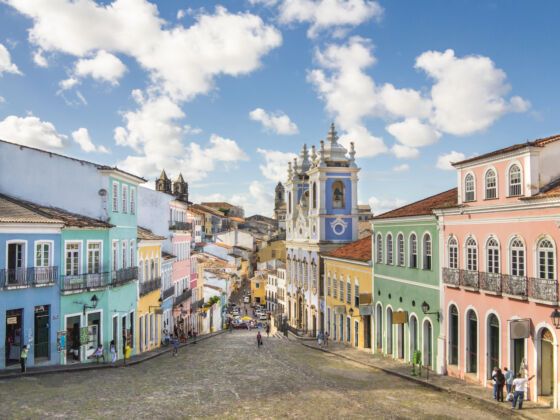1. Fun being the #1 priority
Salvador is renowned for its fun-loving attitude, parties, and outdoor music shows. During the World Cup, classes in local universities were put on hold, not just for the Brazil games, but for the whole month.
I lived for five months in Pelourinho, the historic center, where freelancing proved tough. Once, when trying to meet a deadline, I heard drums in the square below my apartment. Curiosity eventually got the better of me and I decided to “pop out for five minutes to see what’s going on.” Four hours later I rocked up home with my face painted blue and a belly full of beer. What deadline…?
